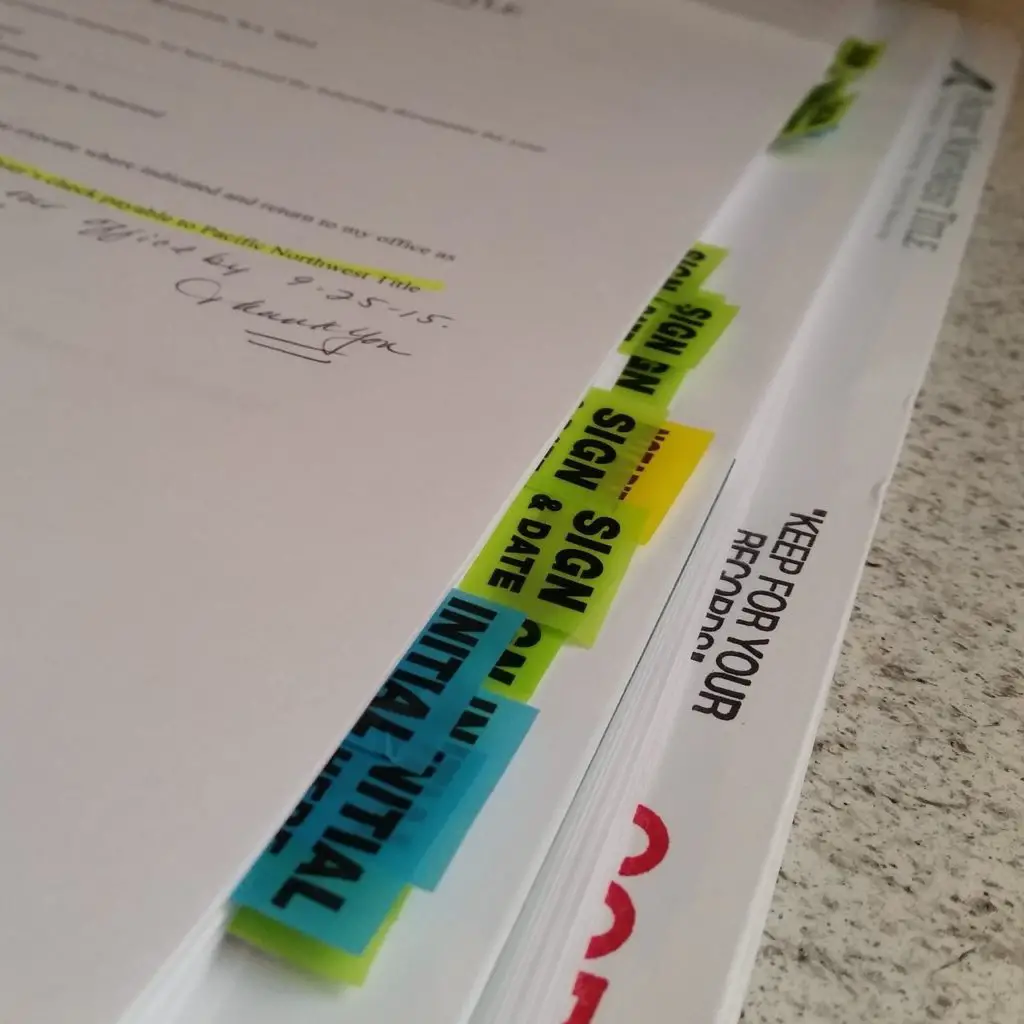Last Updated on 09/30/2017 by GS Staff
Many people probably would agree that applying for a mortgage requires a lot of documentation. The documents needed for a mortgage may seem excessive to some, but they are necessary for the most part. Banks or lenders need this documentation to evaluate the risk they are taking on in lending a borrower a significant amount of money.
Below we have outlined some of the common documents that may be needed for a mortgage. These are some typical documents that are sent to a lender and are reviewed by a mortgage underwriter for a loan decision. We cannot tell you what documents that you specifically need for a mortgage because the documentation varies from lender to lender. You can use the below information as a guide to what you may potentially need. Later, your loan officer or lender will advise you on what specifically is needed for documentation based on your financial situation and the loan program that you are qualified for.
Application
This will be complete to start the mortgage process. A mortgage professional commonly will walk you through how to complete the application. The application will include all the relevant details about you to obtain a mortgage. This includes information such as your name, social security number, employer, income, assets, and debts.
Paystubs
If you are a salary or hourly type of employee, you will likely need to provide paystubs. The common requirement is for the paystub to be dated within 30 days prior to the application date. The paystub typically must contain the following information:
- Year-to-date income
- Employee name
- Employer name
- Dates the paystub covers
- Must be computer generated
- Rate of pay or salary earned for the period
- Hours worked for the period covered by the paystub
In lieu of a paystub, the employer can often provide a full verification of employment form. This is a written out version of the borrower’s income/employment history.
W-2s
IRS W-2 forms are often a requirement. The lender will review one or two years of the previous years’ W-2s, depending on the loan. The lender typical wants all W-2s and not just the ones from your current employer if you have had multiple jobs over the the prior year(s).
Tax Returns
Tax returns may be a requirement if you are self-employed, have rental income, or for various other types of income. Lenders commonly want to see all schedules of the original personal federal income tax returns that were sent to the IRS. Depending on the loan, one or two years of tax returns is often what is requested. The lender will likely verify the information on the tax returns by ordering a 4506-T that you will sign during the mortgage process.
Retirement Income
If your source of income is social security or pension income, you will likely have to document this income. Lenders typically want to see a social security award letter or a pension award letter/letter from the company issuing the pension stating the monthly income amount.
Assets
One or two months of asset statements is usually the requirement to verify reserves or cash required to close the loan. Examples of asset statements include bank statements, brokerage statements, and 401K statements.
Appraisal
Most loans require an appraisal to verify the value of the subject property. The value of the subject property is important because it determines the amount the lender is willing to lend a borrower. The appraisal is usually order by the mortgage broker or the lender through a third party appraisal management company. The borrower is typically responsible for paying for the appraisal.
Credit Report
The lender or mortgage broker will pull your credit report and review your liabilities. The lender will use your credit report to determine your total monthly debt payments and examine it for any potential past delinquencies or derogatory credit.
Conclusion
A mortgage professional will guide you on what documentation to provide your lender. We do not recommend providing any documentation to your lender or mortgage broker until they specifically request the documentation. The documents needed for a mortgage can greatly vary from lender to lender. You do not want to provide unnecessary documentation to slow down the loan review process. However, expect to provide some or all of the documents listed above to your lender.
